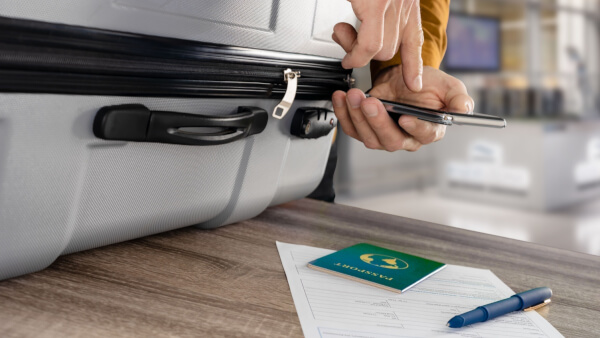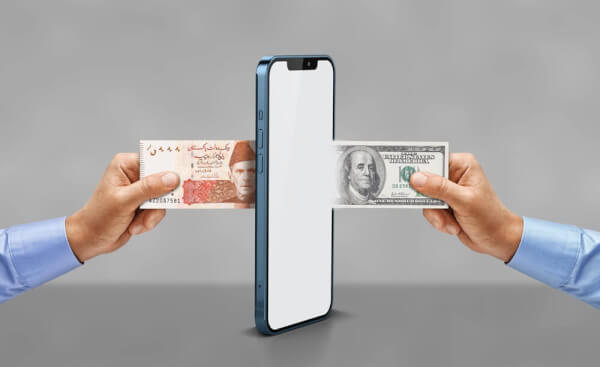Compare Revolut Alternatives in Australia: Features and Fees
Compare Revolut and its alternatives in Australia on features and fees to find the best multi-currency account for your needs.

There are reputedly nearly 350 million active PayPal accounts across the world. Chances are, you’ve got one yourself.
If you have bought something online with PayPal, and you’re not happy with the outcome, it’s good to know what your options are. If the goods never arrive, or are not as they were described by the seller, you may be able to get a refund from the merchant, either directly or using the PayPal dispute process.
This guide walks through the PayPal dispute process, including eligibility and potential costs. We’ll also take a look at a smart way to cut the costs of shopping with overseas retailers online, using the Wise foreign currency account.
If you’re unhappy with a purchase made using PayPal, the first step is to work with your seller to ask for a refund directly. Depending on the specific issue and the merchant’s policies you may be able to get the issue sorted without needing to open a dispute at all. You can learn more about PayPal refunds, in this helpful guide.
If you’ve been unable to resolve the issue directly with the seller, you may need to open a PayPal dispute. PayPal disputes are used if either¹:
If this is the situation, PayPal can step in to adjudicate on the case if you and the seller can’t work things out between you.
PayPal disputes are managed through the PayPal Resolution Center. To open a dispute you’ll need to log into your PayPal account using a laptop or computer - you can’t use the mobile app. Once you’re in your account, you can select Resolution Center, and click on Report a Problem.
You’ll then be guided through the process using online prompts, choosing the reason for the dispute and uploading or adding any additional details required for the seller to sort the problem out.
Once your dispute has been logged in the Resolution Center, your seller will also be able to see it and respond. PayPal then gives you 20 days to resolve the issue to your satisfaction directly with the seller. The seller may issue a refund, and then mark the dispute as closed, or you can mark it as closed if you get to a different mutually agreed resolution.
If you can’t sort things out with the seller within the 20 day window, you’ll need to progress the dispute to a claim. This means that PayPal will step in to review the case and decide whether a refund should be paid. It’s important to know that disputes which are not escalated within the 20 days will be automatically closed and can not be reopened, so you’ll need to keep a close eye on timelines.
PayPal’s claim team may ask for more information from both the buyer and the seller, including tracking numbers or evidence of the specific issue with the product. Again, strict timelines apply, so you’ll need to upload or add your details within a given number of days to continue with the claim.
Once the PayPal team have all they need, they’ll come to a decision about whether or not you should get a refund.
There are no fees for opening a dispute or claim - but there are associated costs which you may end up paying.
One potential cost is return shipping, in the event that you need to send the product back to the supplier. PayPal does offer a Refunded Returns program, which may mean they cover the costs of sending back your item, up to a maximum of AUD45. However, not all purchases are eligible, and you’ll need to register for this program before you open your dispute. Read more about PayPal Refunded Returns here.
Another place you may lose out is if you were billed for your purchase in a foreign currency. In this case, the amount you’ll have paid in AUD will have been decided based on the PayPal exchange rate which was prevailing at the time of purchase. However, if your refund is issued more than a day later than the purchase, then the exchange rate used will be the one which is available on the day the refund is processed. This may mean you get back less than you spent due to fluctuations in the exchange rate.
If you’re shopping with international retailers using PayPal, it’s also worth knowing that you’ll pay an extra currency conversion fee for your purchase. This is usually 4% above the mid-market exchange rate². If you want to avoid this charge, you might be better off shopping online using a multi-currency account like the Wise foreign currency account, to get currency conversion with no markup, and cut costs. More on that later.
You can request a refund up to 180 days after your purchase.
If the seller does not offer you a refund, you can then proceed to open a dispute. When you open a dispute, you and the seller will have up to 20 days to resolve the issue without PayPal’s intervention. If thi is not possible, you need to proceed to a claim within the 20 day limit.
Once you have escalated your issue to a claim, PayPal will review it, and may take up to 30 days to come to a conclusion. If they find in your favour, you’ll be issued a refund. The refund is paid using the original payment method. If you paid initially using a bank transfer, this will take some 7 to 10 days to arrive. If you paid using a credit or debit card you may need to wait 30 days before your money reappears.
PayPal is a convenient way to shop online, but it’s not always the best - or cheapest - option.
If you’re planning on buying something from abroad and will need to pay in a foreign currency, you could save money if you pay using your Wise foreign currency account. Open an account online for free, top up in AUD and simply switch to the currency you need for a low, transparent fee, using the mid-market rate. This avoids the 4% currency conversion fee charged by PayPal, and lets you pay easily for your purchase using your linked Wise Platinum debit Mastercard, with no extra fees.
Another alternative to using your PayPal account to shop online is to use your credit or debit card directly, or use an alternative digital wallet like Apple Pay, which is linked to your regular bank card. The exchange rates used by major card issuers like Visa and Mastercard are usually fair, and although you’ll probably still pay some foreign transaction fees, it may be lower than PayPal. Some credit cards also offer buyer protections which would let you reclaim any losses if there’s a problem with your transaction. Check out the terms and conditions of your regular card to see the features and fees which will apply.
Hopefully you’ll never need to open a PayPal dispute - but it’s good to know the process just in case. If you love shopping online, make sure your payment method is the best for the specific purchase. You may find you can save with a Wise foreign currency account if you’re shopping with your favourite international retailers.
Sources:
](https://www.paypal.com/au/webapps/mpp/paypal-fees)
All sources accurate as of 19 August 2020
*Please see terms of use and product availability for your region or visit Wise fees and pricing for the most up to date pricing and fee information.
This publication is provided for general information purposes and does not constitute legal, tax or other professional advice from Wise Payments Limited or its subsidiaries and its affiliates, and it is not intended as a substitute for obtaining advice from a financial advisor or any other professional.
We make no representations, warranties or guarantees, whether expressed or implied, that the content in the publication is accurate, complete or up to date.

Compare Revolut and its alternatives in Australia on features and fees to find the best multi-currency account for your needs.

Compare the best CommBank credit cards. Discover which CommBank credit card is best for you, from Qantas points to zero-interest options and travel perks.

Does your Bankwest credit card have travel insurance? Discover which cards still offer complimentary cover, the activation rules, and what it covers.

Planning an international transfer? Our Money Travels review covers everything from fees, exchange rates, and safety to help you decide if it's right for you.

Thinking about Hay Australia? In this Hay review, we break down the account features, card benefits, fees, and how it compares to alternatives.

Planning a large money transfer with ING Bank in Australia? Discover fees, daily limits, processing times, and alternatives.